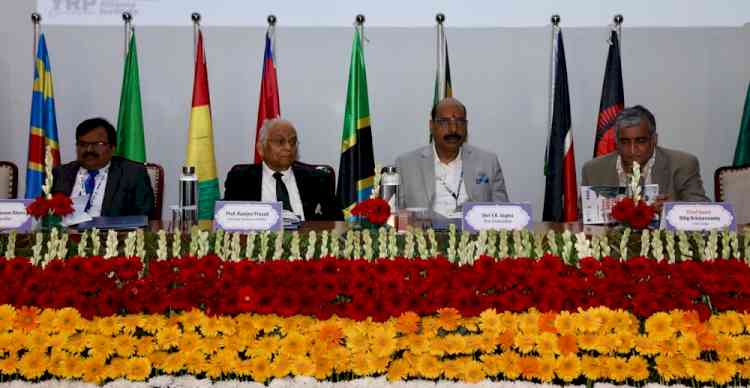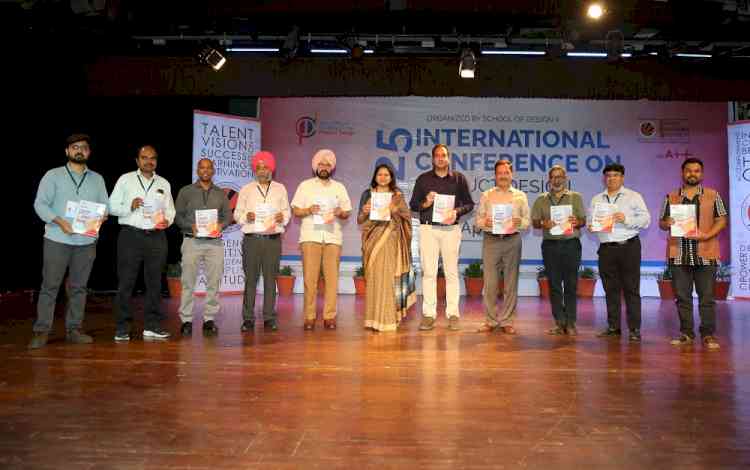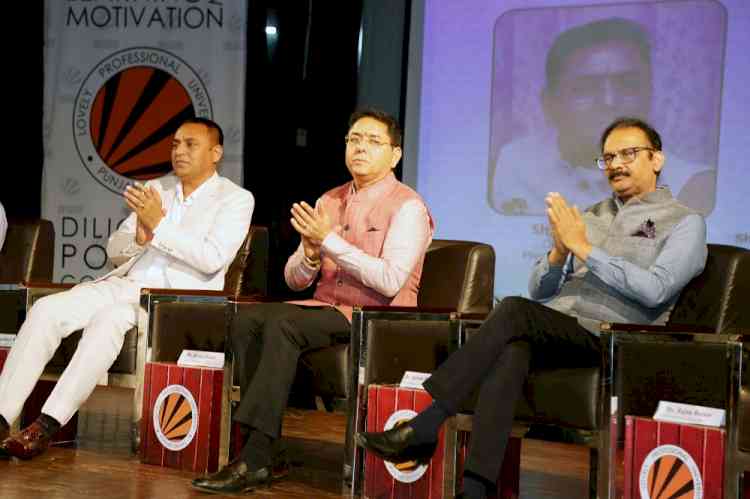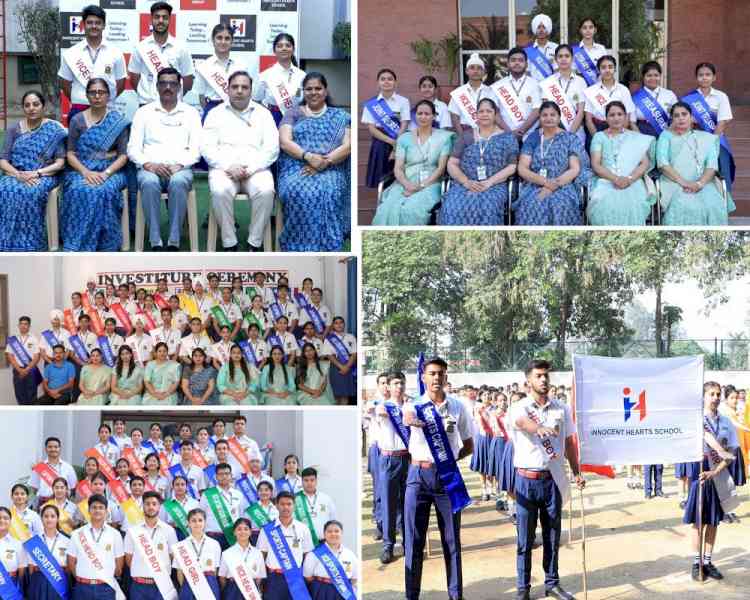Inauguration of 27th International Symposium at Sharda University
The 27th IEEE (Institute of Electrical and Electronics Engineers) International Symposium was inaugurated at Sharda University, located in Knowledge Park, Greater Noida.

The 27th IEEE (Institute of Electrical and Electronics Engineers) International Symposium was inaugurated at Sharda University, located in Knowledge Park, Greater Noida. The event was graced by the chief guests, Professor Ramji Prasad, Founder Director of CTIF and Founding President of GISFI, SK Marwaha, Scientist-G and Group Coordinator of the Ministry of Electronics and Information Technology, Dr. Shingo Omori, Chairman of the Advisory Board of the Communication Research Laboratory Japan, Dr. Dilip Krishnaswamy, Neeli Rashmi Prasad, Associate Professor and Wireless Security and Sensor Network Group, (CTIF), University Pro Chancellor YK Gupta, and Vice Chancellor Dr. Sibarama Khara, who light the ceremonial lamp. Experts shared their thoughts on innovations related to Wireless Personal Multimedia Communication and Secure 6G - AI Nexus.
During the symposium, SK Marwaha, Scientist-G and Group Coordinator, Ministry of Electronics and Information Technology, mentioned that India is progressing beyond the deployment of 5G technology and is now moving towards the creation and establishment of its faster and more advanced successor: the 6G telecommunications network. The 6G technology innovation group, TIG-6G, has developed India's 6G Vision, a strategy aimed at creating 6G technology in India by 2030. This vision aims to design and deploy a 6G network that is secure, intelligent, and offers widespread connectivity, allowing people worldwide to liveever better lives. The vision statement emphasizes India’s commitment to socio-economic prosperity and highlights the potential benefits of India’s leading 6G technology, which will enable ultra-low latency and speeds up to 1 terabit per second. This could be a game-changer for the Indian economy.
Dr. Shingo Omori, Chairman of the Advisory Board of the Communication Research Laboratory Japan, expressed his gratitude for the conference held at Sharda University. He mentioned that the facilities at the university would soon rank among the world’s leading universities. India is expected to file around 10 patents related to 6G technology, which will be highly beneficial for the Indian economy.
University Pro Chancellor YK Gupta emphasized that the 6G network would be able to utilize higher frequencies compared to 5G, offering much greater capacity and very low latency. He stated that 6G would demonstrate the emergence of simple, convenient, and easy-to-carry devices with vast digital capabilities. This will help advance rural ecosystems with minimal or no need for equipment on-site for paramedical staff, teachers, agricultural technicians, doctors, professors, and agricultural experts. Prime Minister Narendra Modi’s 6G Vision document for India, presented by the government, aims to position India as a leading contributor to the design, development, and implementation of 6G technology by 2030. Many countries view India as a promising destination for investment in the 6G technology sector.
The event was also attended by the university's Vice Chancellor Dr. Sibaram Khara, Pro Vice Chancellor Dr. Parmanand, Registrar Dr. Vivek Gupta, Dean of Research Dr. Bhuvnesh Kumar, Dr. Pallavi Gupta, Dr. Amit Sehgal, Director of Admissions Dr. Rajeev Gupta, Dr. RC Singh, Director of PR Dr. Ajit Kumar, along with deans and HODs from various departments.


 City Air News
City Air News 










